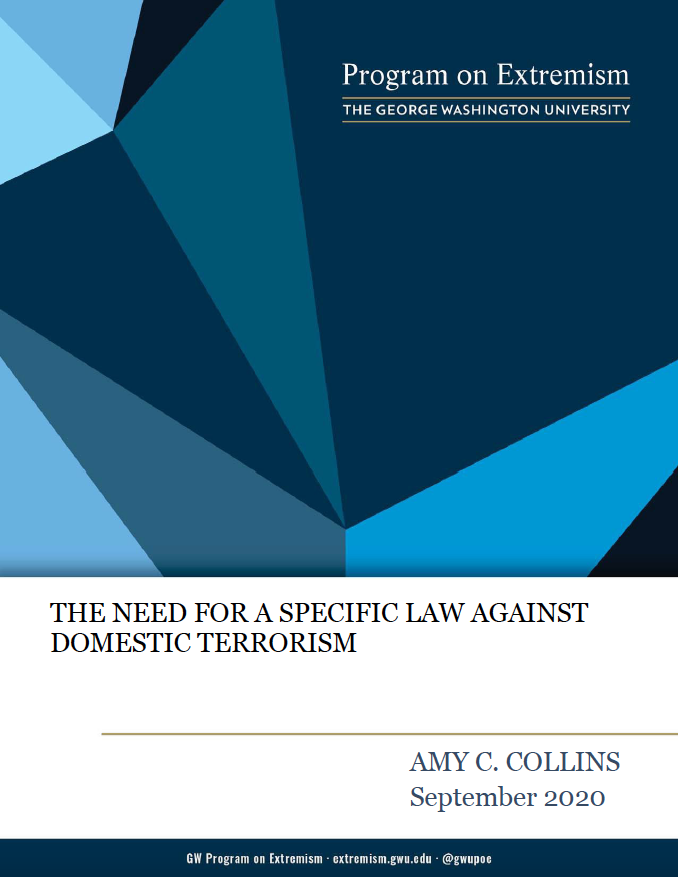Although the United States has taken a powerful stance in fighting the War on Terror, and attempts have been made to define domestic terrorism alongside international terrorism within federal legislation, there is a “considerable amount of ambiguity over domestic terrorism, what it means precisely, [and] how it’s charged.” This ambiguity arises from the lack of a standalone criminal offense outlawing domestic terrorism. In light of this ambiguity and the rise in domestic terrorism within the United States since September 11, 2001, the United States needs to enact a law specifically outlawing domestic terrorism but has clear bounds to its application.
Accordingly, this paper recommends that Congress enacts the law set forth here, which outlaws actual, threatened, attempted, or conspiracy to violate a criminal law of the United States or any state, where the person does not act pursuant to a Foreign Terrorist Organization (FTO), an act takes place in within the jurisdiction of the United States, and the acts appear to be intended to (i) intimidate or coerce a civilian population, or (ii) influence the policy or conduct of a government by intimidation, coercion, or violent means. The statute announced here is roughly based on the definitions of domestic terrorism set forth in Section 802 of the Uniting and Strengthening America by Providing Appropriate Tools Required to Intercept and Obstruct Terrorism Act (USA PATRIOT Act) of 2001, codified by 18 U.S.C. § 2331(5) (2012) and employed by the Federal Bureau of Investigation (FBI), the jurisdictional language of 18 U.S.C. § 956(a)(1)-(b), the penalties provided in 18 U.S.C. § 2332(b), the civil remedies provided in 18 U.S.C. § 2333, the statute of limitations afforded to the federal crimes of terrorism (listed in 18 U.S.C. § 2332b(g)(2)), the investigative authority discussed in 28 C.F.R. § 0.85(l) (1969), and the domestic terrorism laws of other nations that provide for charging threats of terrorist acts. The goal of this law would be to ensure language classifying domestic terrorism is not over- or under-inclusive so that innocent or protected conduct is not punished and that terrorist conduct (e.g., conduct aimed at intimidating or coercing a civilian population, influencing the policy of a government by intimidation or coercion, or affecting the conduct of a government through violent means) can be investigated and prosecuted with proper process and national uniformity.


